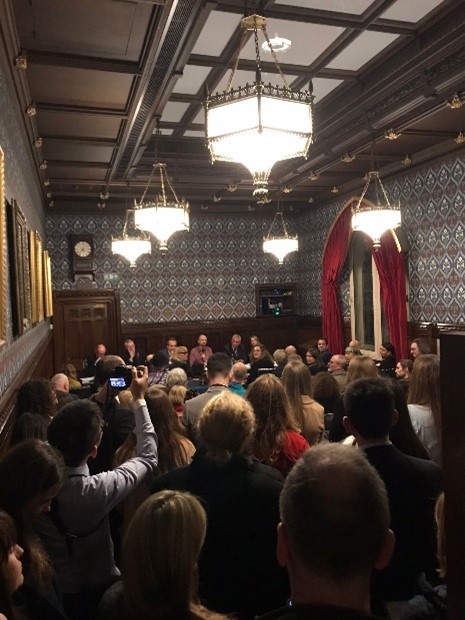The ‘new and improved’ LEB – an opportunity to revolutionise energy generation across the UK
In a ‘modest’ corner of Westminster Hall, the excellent ‘Power for People’ organised and hosted the All-Party Parliamentary Group for Community Energy. Seasoned veterans and newcomers alike packed into the heavily attended event, where an (almost) cross-party panel of speakers were found enthusiastically championing the bill. Additional speakers included the National Trust’s Will Handford and Tom Fyans of the CPRE. We missed out on representation from the Green Party, but Caroline Lucas MP, is fortunately a key supporter and co-sponsor of the Bill.
The Local Electricity Bill (LEB) is at the 2nd Reading Stage in the House of Commons and has the potential to decentralise the UK’s energy infrastructure, currently dominated by just six DNO’s and less than 40 energy suppliers – who do seem to understand the critical need for 1) more energy generation from renewable and sustainable sources, 2) improved technology and strategy to facilitate grid smoothing , 3) upgraded infrastructure to accommodate BOTH more distributed generation and the widespread shift towards heating and automotive electrification. The LEB would facilitate solutions around all three challenges; encouraging flexibility markets and energy storage, providing greater generation revenues to potentially pay for local distribution reinforcements and crucially, stimulating local economies across the UK by breaking down barriers to registering as a local supplier.
Imagine – locally produced energy, supplying local dwellings and businesses, utilising local renewable and sustainable energy sources, that would keep money is your pocket AND fund a local business which would (hopefully) reinvest a portion of their profits back into community via a Community Benefit Fund. How much resilience and progression this might encourage would be down to local support and effort but the effects would much wider and far-reaching than what we typically associate with the simple flicking of a switch.
During the event, there was positive discussion around the support that large organisations could lend, from corporate bodies to charities and lobby groups, and the feedback from both the National Trust and the CPRE was that they are willing and ready to engage with more renewable generation projects. It was particularly inspiring to hear Tom Fewins, of the CPRE, speak to the importance of more community-led, local, renewable generation, the CPRE being a well-known voice around renewables planning at both a grassroots and national level. The importance of opposing views finding common ground on such a critical issue cannot be underestimated – this should be seen as an opportunity to reimagine relationships and work in partnership to avoid widespread ecological destruction.
The Bill currently has the formal support of 311 of 650 MP’s and is just 15 short of a majority – highlighting the most promising route to a landmark shift towards renewable energy generation since the introduction of FiT’s more than a decade ago. Convincing your local MP to support this Bill is something you can do right now to support this – check here to see if your local MP is onboard already. Additionally, check out the wider campaign here to find out about more ways to support the green shift of UK Energy Policy!

